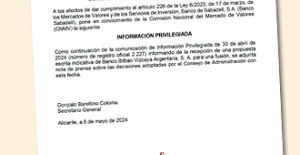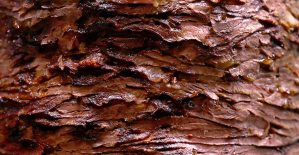Everyone has had diarrhea due to gastroenteritis or food poisoning. Usually short-lived, symptoms fade naturally, sometimes with the help of treatment. But when they persist on a daily basis, things take a different turn. We then speak of chronic diarrhea. Very disabling, it can last as long as it is not taken care of, with a significant impact on daily life. And although some may find it embarrassing to tell the doctor, a consultation is necessary because, in some cases, chronic diarrhea is a reflection of a more serious pathology.
Diarrhea is said to be prolonged when it lasts two to four weeks and chronic when it lasts for more than a month. It then manifests itself by the emission of soft to liquid stools too frequently, generally more than three times a day. Other symptoms may be associated with it, such as the presence of mucus (white or translucent substances that come from the rectum or colon) or blood in the stools, abdominal pain, bloating, intestinal spasms with flatulence, nausea and /or vomiting, fatigue or even “false needs” (a feeling of wanting to have a bowel movement).
When diarrhea occurs suddenly and lasts less than a week, it is called acute diarrhea. Often benign, its origins can be diverse, ranging from viral gastroenteritis to a bacterial or parasitic infection. While remaining vigilant in particular about the risk of dehydration, particularly among the most fragile (infants, elderly people, etc.), we must know how to respect it: diarrhea is useful for eliminating the pathogen that caused it.
Diet is one of the most common non-pathological causes of chronic diarrhea. Typically, people who have intolerances to fructose (fruit, honey), gluten, lactose will have diarrhea every time they eat foods that contain them.
Drug reactions. If diarrhea occurs chronically, you should also consider the potential introduction of a new medication into your daily life (such as antibiotics), as they may be the cause.
Chronic excessive alcohol consumption can impair the normal functioning of pancreatic enzymes, causing pancreatic insufficiency. We are talking about chronic pancreatitis. “The stools are then greasy due to malabsorption of certain foods. This can be accompanied by significant and unintentional weight loss,” explains Dr William Berrebi, gastroenterologist and hepatologist in Paris, member of the French society of gastroenterology, of the French society of digestive endoscopy. and author of the books Microbiotic Medicine: your new prescription for good health (ed. Marabout, 2022) and Mission Flat Belly (ed. Marabout 2023).
Laxative abuse can impair the normal functioning of the digestive system. It results in irritation of the colon and an imbalance in the production of mineral salts (potassium, magnesium, etc.), by artificially stimulating intestinal movements.
A state of anxiety can promote gastrointestinal disorders, including diarrhea, by causing an increase in the production of cortisol, a “stress” hormone produced by the brain, which can unbalance the intestinal microbiota. “Be careful however, stress is not a cause of diarrhea on its own but it can exacerbate the symptoms of patients suffering, for example, from irritable bowel syndrome,” warns Dr William Berrebi.
Acceleration of intestinal transit (motor diarrhea) is mainly due to disorders of intestinal motility which affect the contraction and coordination of the intestinal muscles. “They then become too active, causing excessive and rapid contractions which result in accelerated evacuation of stools through the colon,” explains Dr. William Berrebi. This can be the consequence of several pathologies such as irritable bowel syndrome (or functional colonopathy), a chronic illness such as diabetes, or more rarely certain tumors which affect the digestive system (carcinoid tumor). However, an acceleration of transit can also be linked to the use of medications (for example, antacids) and laxatives.
Malabsorption syndrome causes damage to the intestinal wall. In this case, the digestive tract is no longer able to properly digest or absorb the nutrients provided by food. The stools are then greasy and very abundant (steatorrhea). This syndrome is characteristic of celiac disease (gluten intolerance) linked to atrophy of the intestinal mucosa.
Inflammation in the colon or rectum stimulates the secretion of proteins, mucus, and sometimes blood from the mucous membranes, which can cause chronic diarrhea. It is observed in particular in certain inflammatory bowel diseases (IBD) such as ulcerative colitis (chronic inflammation of the inner lining of the intestine) or Crohn's disease, which can affect several parts of the digestive tract up to the anus and which is favored by genetic predispositions. More rarely, the inflammation has a cancerous origin when a tumor settles in the intestinal wall, the colon or the rectum.
An infectious or parasitic origin caused by certain bacteria (salmonella, shigella, clostridium difficile, etc.) or other intestinal parasites such as Giardia intestinalis which is a cause of giardiasis, a common traveler's illness. All of these pathogens cause inflammation of the intestine or colon.
A hormonal origin. “Hormones play an essential role in regulating the digestive system, and hormonal disruptions can lead to gastrointestinal disorders, including persistent diarrhea,” points out Dr. William Berrebi. In this case, several pathologies are involved. For example, hyperthyroidism is characterized by an excess of thyroid hormones (thyroxine and triiodothyronine), which can accelerate intestinal transit. Hormonal secretion disorders are also observed in certain very rare tumors of the intestine, pancreas or even the thyroid. This is for example the case of certain carcinoid tumors or Zollinger syndrome, a condition of tumor origin (pancreas or small intestine) which is characterized by the presence of gastric ulcers.
The diagnosis may require several laboratory tests due to the very diverse causes of chronic diarrhea. First, the doctor interviews the patient in order to identify the symptoms and their frequency. This will then involve describing the stools, their color, texture and abundance as well as all associated symptoms. Other questions will also target lifestyle in order to know, for example, if this diarrhea coincides with a change in diet or taking medications. A physical examination follows, which involves palpation and percussion of the abdomen.
The presence of blood in the stools and the feeling of wanting to have a bowel movement (“false urges”) will directly direct the doctor to look for an inflammatory cause. In this case, a blood test will first allow you to look for markers of inflammation. “In particular, we will detect an abnormal increase in the production of blood cells, that is to say white blood cells, platelets as well as C-reactive protein (CRP) in response to inflammation. This may be a sign of ulcerative colitis or Crohn's disease,” explains William Berrebi. In addition, he will carry out a determination of the level of fecal calprotectin (a marker of intestinal inflammation), a colonoscopy (a camera inserted through the anus to observe the wall of the intestine) and biopsies (taking small fragments of mucosa) to confirm the diagnosis.
The blood test also allows the diagnosis of hyperthyroidism (increased thyroid hormone levels), celiac disease (increased production of anti-transglutaminase antibodies) or even an infectious cause (increased production of blood cells). whites by the immune system in response to the infectious agent). In the latter case, the gastroenterologist will systematically carry out a coproculture (search for bacteria in the stools) and parasitological examinations of the stools.
In certain cases, the doctor may order an abdominal ultrasound to look for liver or pancreatic lesions. Finally, any suspicion of a tumor will require a full colonoscopy as well as biopsies. If this diagnosis is confirmed, other examinations will be indicated (abdominopelvic scan).
During the medical examination, the diagnosis of “false diarrhea” should be ruled out. This variant, which is also characterized by watery stools and abdominal pain, may actually result from constipation. It results in alternation between hard and liquid stools. “Typically, if the patient has not had a bowel movement for several days and when he defecates, only “water” comes out, this is a sign of false diarrhea. This may mean that fecal matter is stuck in the rectum, but the fluid needs to be excreted,” says Dr. William Berrebi. A rectal examination can then be carried out to look for a possible fecal impaction, a blockage in the rectum which ends up releasing its water. They are in particular a classic cause of false diarrhea in the elderly.
It all depends on the cause identified by the doctor. “The symptomatic approach in the case of chronic diarrhea is doomed to failure because most of the time you have to get to the root of the problem. And this problem is more or less serious, hence the importance of consulting,” insists Dr William Berrebi.
If the cause is linked to diet, the doctor may advise you to adapt your diet, for example by removing gluten or lactose in the case of intolerance.
If the cause is medicinal, you will need to consider alternative treatments with your doctor.
If the origin is infectious or parasitic, it will be treated with antibiotics or antiparasitics.
In the event of chronic inflammatory diseases, specific treatment will be implemented.
If tests confirm the presence of a tumor, standard treatments may include radiotherapy, chemotherapy and surgery under the supervision of an oncologist.

 Finding yourself face to face with a man or a bear? The debate that shakes up social networks
Finding yourself face to face with a man or a bear? The debate that shakes up social networks Sabadell rejects the merger with BBVA and will fight to remain alone
Sabadell rejects the merger with BBVA and will fight to remain alone In Germany, the far left wants to cap the price of “doner kebabs”
In Germany, the far left wants to cap the price of “doner kebabs” Israel-Hamas war: Gaza between hope of truce and fear of Israeli offensive in the South
Israel-Hamas war: Gaza between hope of truce and fear of Israeli offensive in the South The presence of blood in the urine, a warning sign of bladder cancer
The presence of blood in the urine, a warning sign of bladder cancer A baby whose mother smoked during pregnancy will age more quickly
A baby whose mother smoked during pregnancy will age more quickly The euro zone economy grows in April at its best pace in almost a year but inflationary pressure increases
The euro zone economy grows in April at its best pace in almost a year but inflationary pressure increases Children born thanks to PMA do not have more cancers than others
Children born thanks to PMA do not have more cancers than others “The prices are astronomical”: to enjoy the Olympics with family, Sabrina spent... 8,000 euros
“The prices are astronomical”: to enjoy the Olympics with family, Sabrina spent... 8,000 euros “House of the Dragon”, “Succession”… Max, the new streaming platform from HBO and Discovery, launched in France on June 11
“House of the Dragon”, “Succession”… Max, the new streaming platform from HBO and Discovery, launched in France on June 11 The A13 motorway will finally reopen this Friday, in one direction only
The A13 motorway will finally reopen this Friday, in one direction only TNT commission of inquiry: tensions between LFI deputies and Macronists before the vote on the report
TNT commission of inquiry: tensions between LFI deputies and Macronists before the vote on the report The Coubertin Spirit, Eternal Memory, Planet of the Apes... Films to watch this week
The Coubertin Spirit, Eternal Memory, Planet of the Apes... Films to watch this week Rappers Drake and Kendrick Lamar vie for the spotlight
Rappers Drake and Kendrick Lamar vie for the spotlight In Istanbul, the ancient Byzantine church of Saint-Sauveur-in-Chora reopens for Muslim worship
In Istanbul, the ancient Byzantine church of Saint-Sauveur-in-Chora reopens for Muslim worship David Castello-Lopes: a fresh wind blows on the one-man show with his show Authentique
David Castello-Lopes: a fresh wind blows on the one-man show with his show Authentique Omoda 7, another Chinese car that could be manufactured in Spain
Omoda 7, another Chinese car that could be manufactured in Spain BYD chooses CA Auto Bank as financial partner in Spain
BYD chooses CA Auto Bank as financial partner in Spain Tesla and Baidu sign key agreement to boost development of autonomous driving
Tesla and Baidu sign key agreement to boost development of autonomous driving Skoda Kodiaq 2024: a 'beast' plug-in hybrid SUV
Skoda Kodiaq 2024: a 'beast' plug-in hybrid SUV The home mortgage firm rises 3.8% in February and the average interest moderates to 3.33%
The home mortgage firm rises 3.8% in February and the average interest moderates to 3.33% This is how housing prices have changed in Spain in the last decade
This is how housing prices have changed in Spain in the last decade The home mortgage firm drops 10% in January and interest soars to 3.46%
The home mortgage firm drops 10% in January and interest soars to 3.46% The jewel of the Rocío de Nagüeles urbanization: a dream villa in Marbella
The jewel of the Rocío de Nagüeles urbanization: a dream villa in Marbella Institutions: senators want to restore the accumulation of mandates and put an end to the automatic presence of ex-presidents on the Constitutional Council
Institutions: senators want to restore the accumulation of mandates and put an end to the automatic presence of ex-presidents on the Constitutional Council Europeans: David Lisnard expresses his “essential and vital” support for François-Xavier Bellamy
Europeans: David Lisnard expresses his “essential and vital” support for François-Xavier Bellamy Facing Jordan Bardella, the popularity match turns to Gabriel Attal’s advantage
Facing Jordan Bardella, the popularity match turns to Gabriel Attal’s advantage Europeans: a senior official on the National Rally list
Europeans: a senior official on the National Rally list These French cities that will boycott the World Cup in Qatar
These French cities that will boycott the World Cup in Qatar Ligue 1: at what time and on which channel to watch the Multiplex on Sunday?
Ligue 1: at what time and on which channel to watch the Multiplex on Sunday? PSG-Dortmund: Hummels’ (big) tackle to “teams who wanted to play against” BVB
PSG-Dortmund: Hummels’ (big) tackle to “teams who wanted to play against” BVB Top 14: Pierre Bochaton extends with UBB until 2027
Top 14: Pierre Bochaton extends with UBB until 2027 Tennis: Monfils beaten, Atmane surprises and advances to the 2nd round in Rome
Tennis: Monfils beaten, Atmane surprises and advances to the 2nd round in Rome


















